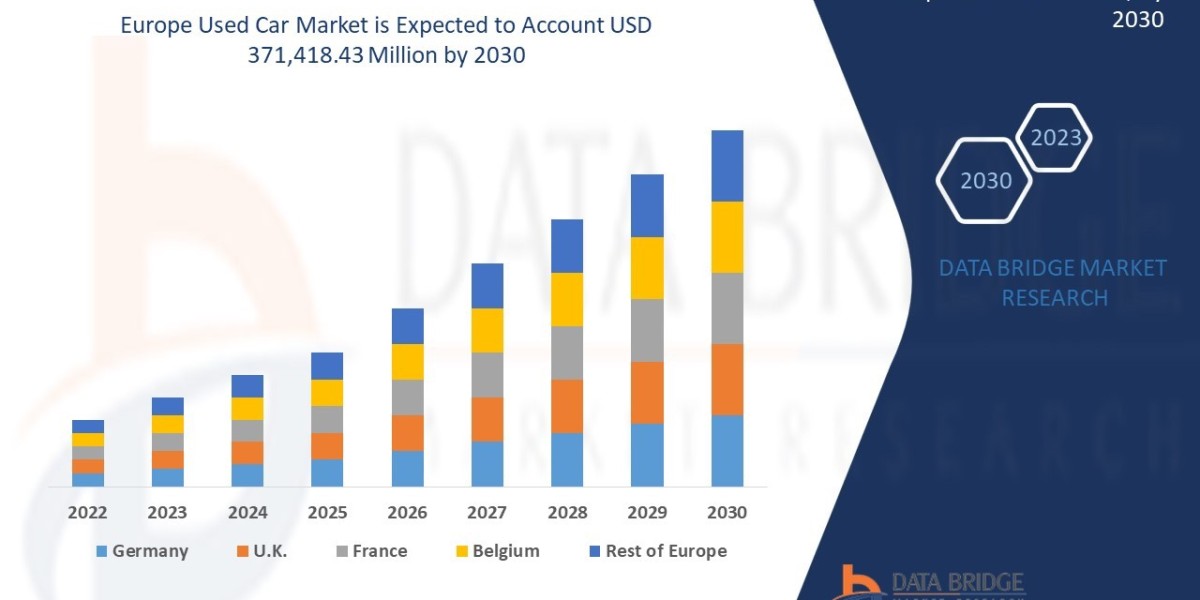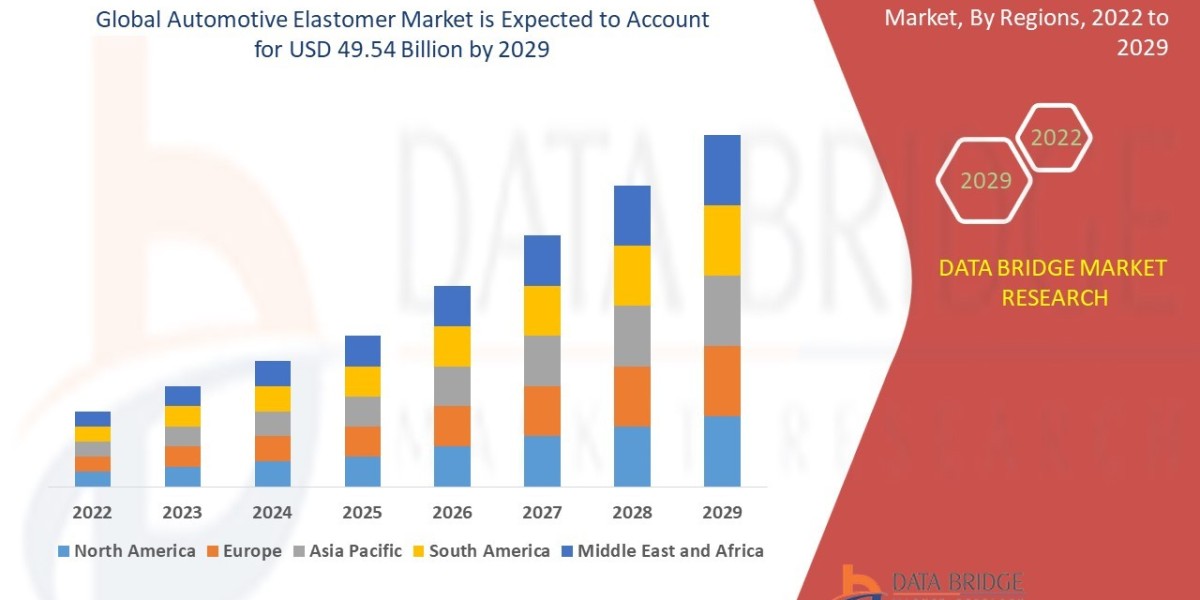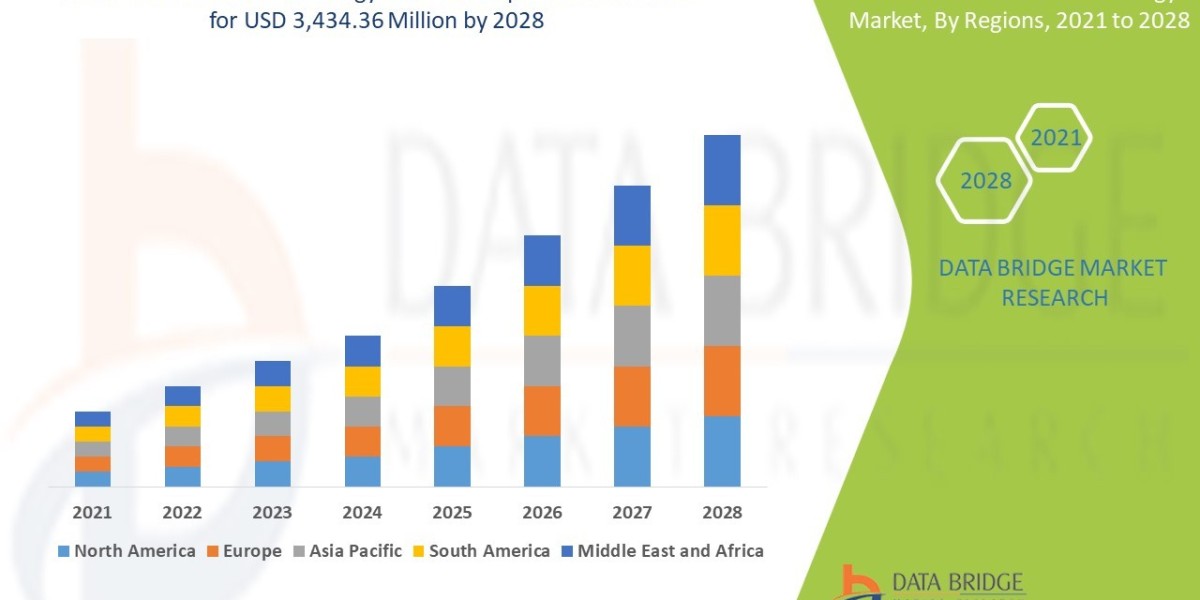Introduction
The Europe Used Car Market represents a vital component of the region’s automotive ecosystem, offering affordable and accessible mobility solutions to millions of consumers. Used cars are pre-owned vehicles that are sold through dealerships, online platforms, auctions, or individual transactions. The market has gained significant traction as consumers across Europe increasingly prefer cost-effective alternatives to new vehicles, driven by economic considerations, sustainability goals, and rapid digitalization in car trading.
The market’s relevance continues to expand with the growing supply of high-quality used vehicles, increasing penetration of electric and hybrid models, and the strong presence of digital resale platforms that simplify the buying and selling process.
The sector plays a crucial role in meeting mobility needs, reducing automotive waste, and supporting the circular economy. Rising awareness about vehicle depreciation, the availability of certified pre-owned programs, and the transition toward online automotive marketplaces are redefining the dynamics of the European automotive resale landscape.
Learn how the Europe Used Car Market is evolving—insights, trends, and opportunities await. Download report: https://www.databridgemarketresearch.com/reports/europe-used-car-market
The Evolution
The evolution of the Europe Used Car Market can be traced back to the mid-20th century when post-war recovery led to the growth of automobile ownership across Western Europe. Initially, the used car segment was fragmented and informal, dominated by local dealers and private sellers.
During the 1980s and 1990s, the used car trade became increasingly organized, with the entry of large dealership networks and certification programs ensuring vehicle quality and transparency. Consumers began to recognize the economic advantage of purchasing used cars that offered similar reliability as new ones but at a significantly reduced cost.
The 2000s brought major transformations with the introduction of online automotive marketplaces, including platforms like AutoTrader, Mobile.de, and AutoScout24. These platforms revolutionized accessibility by allowing buyers to compare prices, inspect vehicle histories, and finalize transactions digitally.
In recent years, the rise of electric and hybrid vehicles has created new segments in the used car market. As the first generation of EVs and plug-in hybrids reach resale age, their presence is growing within used car inventories. Additionally, digital financing solutions, AI-based vehicle valuation tools, and virtual inspection systems have improved trust and convenience for both buyers and sellers.
The market’s evolution reflects Europe’s broader economic and technological trends — from the rise of shared mobility to sustainability initiatives that encourage the reuse of existing vehicles to reduce carbon footprints.
Market Trends
The Europe Used Car Market is characterized by dynamic shifts in consumer preferences, technological adoption, and mobility behaviors.
1. Rising Demand for Certified Pre-Owned (CPO) Vehicles
CPO programs offered by manufacturers and dealerships have gained prominence, ensuring that used cars meet quality standards and come with warranties. This trend is reshaping buyer confidence and driving higher resale volumes.
2. Growth of Online and Digital Platforms
Digitalization is transforming the buying process. Online platforms such as Cazoo, Heycar, and AutoHero allow customers to browse, finance, and purchase cars remotely. Virtual test drives and AI-powered recommendation tools are enhancing user experience.
3. Expansion of Electric and Hybrid Used Vehicles
As EV adoption increases across Europe, the resale of used electric vehicles is accelerating. Governments are promoting sustainable mobility, and consumers are seeking affordable EV options, making this a rapidly growing segment.
4. Subscription-Based and Leasing Returns
Leasing and car subscription models have resulted in a growing inventory of relatively new, well-maintained used cars re-entering the market after short ownership periods.
5. Data-Driven Vehicle Valuation
AI algorithms and big data analytics are being used by online platforms to determine real-time pricing, improving transparency and reducing negotiation barriers.
6. Sustainability and Circular Economy Impact
Used cars contribute to Europe’s circular economy objectives by extending vehicle lifespans, minimizing production waste, and lowering CO₂ emissions per capita.
7. Cross-Border Trade Expansion
Used vehicle trade between Western and Eastern Europe is increasing. Countries like Germany, France, and the Netherlands export large volumes of used cars to Central and Eastern European markets.
8. Growing Role of Financing and Insurance Services
Financial institutions are offering flexible loans and insurance products tailored for used car purchases, expanding access for young and middle-income consumers.
Challenges
The Europe Used Car Market faces multiple operational and regulatory challenges that influence growth, pricing, and market stability.
1. Regulatory Complexity and Emission Standards
Stringent European Union (EU) emission norms and national regulations impact the resale of older, high-emission vehicles. Countries are introducing low-emission zones that restrict the use of older diesel cars.
2. Supply Constraints
The pandemic and semiconductor shortage disrupted new car production, reducing the availability of used cars as fewer vehicles entered the resale cycle.
3. Price Volatility
Used car prices have surged in recent years due to limited supply and strong demand. This volatility creates uncertainty for both consumers and dealers.
4. Quality and Authenticity Concerns
Odometer fraud and undisclosed accident histories remain major concerns. While digital vehicle history databases help, data discrepancies still occur in cross-border transactions.
5. Uneven Digital Adoption
Not all regions in Europe have embraced online car trading equally. Rural and traditional markets continue to rely on in-person transactions.
6. EV Resale Challenges
The resale of electric vehicles depends heavily on battery health, warranty status, and charging infrastructure, which can complicate valuations.
7. Competition from Mobility Services
Car-sharing, ride-hailing, and micro-mobility alternatives are changing urban consumer habits, particularly among younger populations.
8. Supply Chain Environmental Pressure
The industry faces growing pressure to manage recycling, battery disposal, and the carbon footprint associated with vehicle transport.
Market Scope
The Europe Used Car Market encompasses a wide range of vehicle types, distribution models, and end-user segments across diverse regional landscapes.
Segmentation by Vehicle Type:
Hatchback: Dominant in urban regions due to compact size and affordability.
Sedan: Preferred for comfort and mid-range pricing.
SUV: Increasingly popular due to family-oriented features and high resale value.
Luxury Cars: High demand among upper-middle-class buyers seeking value depreciation advantages.
Electric and Hybrid Vehicles: Fastest-growing segment, particularly in Western Europe.
Segmentation by Fuel Type:
Petrol
Diesel
Electric
Hybrid
Segmentation by Sales Channel:
Online Platforms: Growing rapidly due to digital convenience and transparency.
Offline Dealerships: Still hold significant share in rural and conservative markets.
Regional Analysis:
Western Europe:
The largest market, led by Germany, the United Kingdom, France, and Italy. High vehicle ownership rates, organized dealerships, and established CPO programs dominate.Northern Europe:
Markets such as Sweden and Norway show rapid EV resale growth due to government incentives and strong sustainability policies.Southern Europe:
Countries like Spain and Portugal see strong demand for affordable used cars due to economic constraints and tourism-driven mobility needs.Central and Eastern Europe:
Poland, Romania, Hungary, and Czechia are major importers of used cars from Western Europe, driven by affordability and rising middle-class mobility.
End-User Industries:
Individual Consumers
Car Rental and Leasing Companies
Ride-Sharing and Mobility Providers
Logistics and Delivery Businesses
Market Size and Factors Driving Growth
The Europe Used Car Market continues to exhibit solid expansion, supported by digital transformation, economic factors, and evolving consumer lifestyles.
Data Bridge Market Research analyses that the used car market was valued at USD 221,079.31 million in 2022 and is expected to reach the value of USD 371,418.43 million by 2030, at a CAGR of 6.70% during the forecast period.
Key Growth Drivers:
1. Rising Vehicle Affordability and Value Retention
Used cars provide cost advantages over new ones, appealing to consumers facing inflation and cost-of-living pressures.
2. Growth of Digital Marketplaces
Online trading has improved transparency, trust, and convenience. Digital-first platforms have shortened transaction times and expanded cross-border trade.
3. Increasing Popularity of Electric Vehicles
As governments promote green mobility, demand for affordable used EVs is increasing. Improved battery life and expanding charging infrastructure support this trend.
4. Certified Pre-Owned Programs
Manufacturers and dealers are focusing on certified programs to ensure vehicle quality, attract customers, and enhance resale value.
5. Urbanization and Mobility Trends
Urban consumers are adopting flexible ownership options, boosting short-term used car leasing and secondhand purchases.
6. Technological Advancements
Digital inspection systems, telematics, and blockchain technology for vehicle histories are enhancing trust and operational efficiency.
7. Government Incentives
Scrappage schemes and tax benefits for eco-friendly vehicles are indirectly boosting used car turnover.
8. Expansion of Finance and Insurance Products
Accessible financing and tailored insurance packages make used car ownership more feasible for a broader customer base.
Conclusion
The Europe Used Car Market is set to remain a dynamic and expanding sector of the automotive industry. Its growth reflects the balance between affordability, sustainability, and technological progress.
Transparency, digital innovation, and quality assurance will shape the next phase of growth. As consumers embrace digital tools and sustainable choices, industry players that focus on certification, data-driven valuation, and eco-friendly operations will secure long-term advantages.
The used car industry in Europe not only supports affordability but also contributes significantly to environmental sustainability by extending vehicle life cycles and reducing the need for new production. The future of the market is defined by innovation, digital trust, and a consumer-centric approach.
Frequently Asked Questions (FAQ)
1. What is the Europe Used Car Market?
It is the market for pre-owned vehicles sold through dealerships, online platforms, and private transactions across Europe.
2. What is the size of the Europe Used Car Market in 2025?
The market is valued at USD 480 billion in 2025.
3. What is the forecasted market size by 2035?
It is expected to reach USD 720 billion, growing at a CAGR of 4.1%.
4. What are the main drivers of market growth?
Digitalization, sustainability, affordability, and the growing supply of certified pre-owned vehicles.
5. Which countries dominate the European used car market?
Germany, the United Kingdom, France, Italy, and Spain are the leading markets.
6. What are the key challenges for the industry?
Regulatory restrictions, supply shortages, price volatility, and EV battery valuation issues.
7. How is digitalization impacting the used car market?
It enables online purchasing, virtual inspections, and AI-based vehicle pricing, improving convenience and transparency.
8. What role does sustainability play in this market?
Used cars support the circular economy by extending product life cycles and reducing carbon emissions.
9. Are electric vehicles becoming popular in the used car segment?
Yes, the resale of electric and hybrid vehicles is one of the fastest-growing market trends.
10. What is the future outlook for the Europe Used Car Market?
Steady growth driven by technology adoption, online retail expansion, and consumer preference for sustainable, affordable mobility.
Browse More Reports:
Global Artificial Food Flavours Market
Global Asparagus Extract Market
Global Aspheric Lenses Market
Global Astrocytoma Market
Global Ataxia Market
Global Audio Communication Monitoring Market
Global Augmented Reality and Virtual Reality Market
Global Autoimmune Lymphoproliferative Syndrome (ALPS) Market
Global Automatic Coffee Machines Market
Global Automatic Content Recognition Market
Global Automotive Air Purifier/Ionizer Market
Global Automotive Aluminum Market
Global Automotive Display Market
Global Automotive Display Unit Market
Global Automotive Fuel Cell Market
About Data Bridge Market Research:
An absolute way to forecast what the future holds is to comprehend the trend today!
Data Bridge Market Research set forth itself as an unconventional and neoteric market research and consulting firm with an unparalleled level of resilience and integrated approaches. We are determined to unearth the best market opportunities and foster efficient information for your business to thrive in the market. Data Bridge endeavors to provide appropriate solutions to the complex business challenges and initiates an effortless decision-making process. Data Bridge is an aftermath of sheer wisdom and experience which was formulated and framed in the year 2015 in Pune.
Contact Us:
Data Bridge Market Research
US: +1 614 591 3140
UK: +44 845 154 9652
APAC : +653 1251 975
Email:- corporatesales@databridgemarketresearch.com







